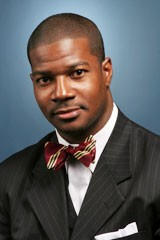Last week at the Transforming Theology confab, these terms came up again and again. And, as usual, much frustration was expressed about the lack of meaning in these words.
One debate was over the words “liberal” and “progressive.” Some in the room wanted to recover the word “liberalism” from those who’ve made it to mean a “Tax-Raising,
Latte-Drinking, Sushi-Eating, Volvo-Driving, New York Times-Reading,
Body-Piercing, Hollywood-Loving, Left-Wing Freak Show.” My advice: too late.
Others expressed dislike of the word “progressive” because it implies human agency in our ability to progress over against divine agency. My take: that’s a good point, but I still like the word…for now.
Interestingly, many in the room like the word “evangelical” and would like to reclaim that appellation. They hearkened back to the 19th century when that word was used to describe liberals, and the African American theologians present told us that the black church is, by definition, evangelical. In general, everyone agreed that the gospel we represented is ultimately more hopeful, more good news, than the conservative version of the gospel, thus we were, by definition, more evangelical.
These things are particularly on my mind because this weekend I’ll be at the Christian Book Expo, which will be populated by tens of thousands of Christians more conservative than I. And I’ll be on a panel with Scot McKnight, who has recently written about what it means to be evangelical (in his opinion) and three Moody authors who have written disparagingly about me and my friends. The panel will be moderated by Mark Galli, who has his own take on evangelicalism.
It will be interesting to see if on that panel, “evangelical” is defined theologically or culturally. And it will be interesting to compare my experience there to my experience last week. It’ll be another in a long series of theological whiplashes in my life.

